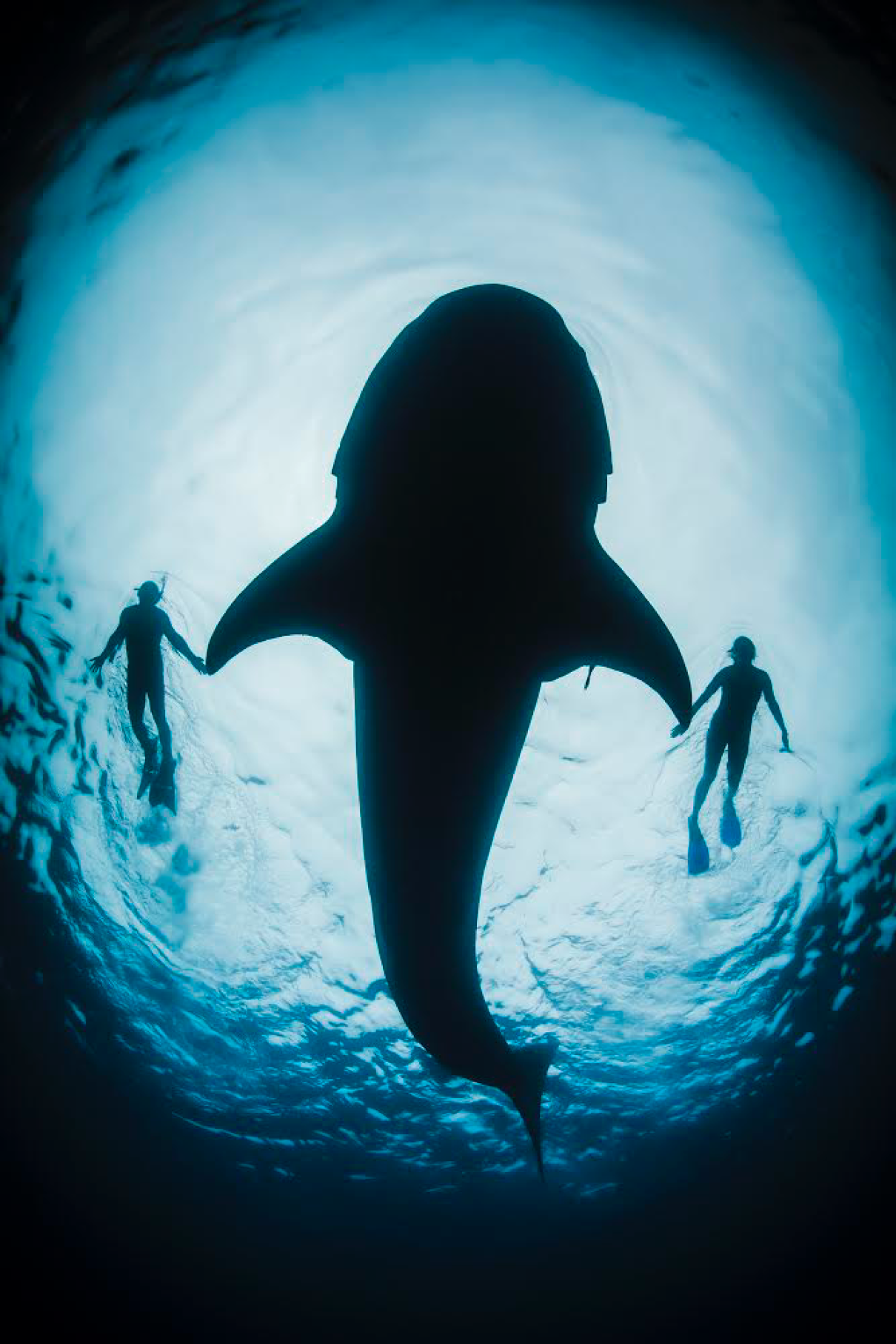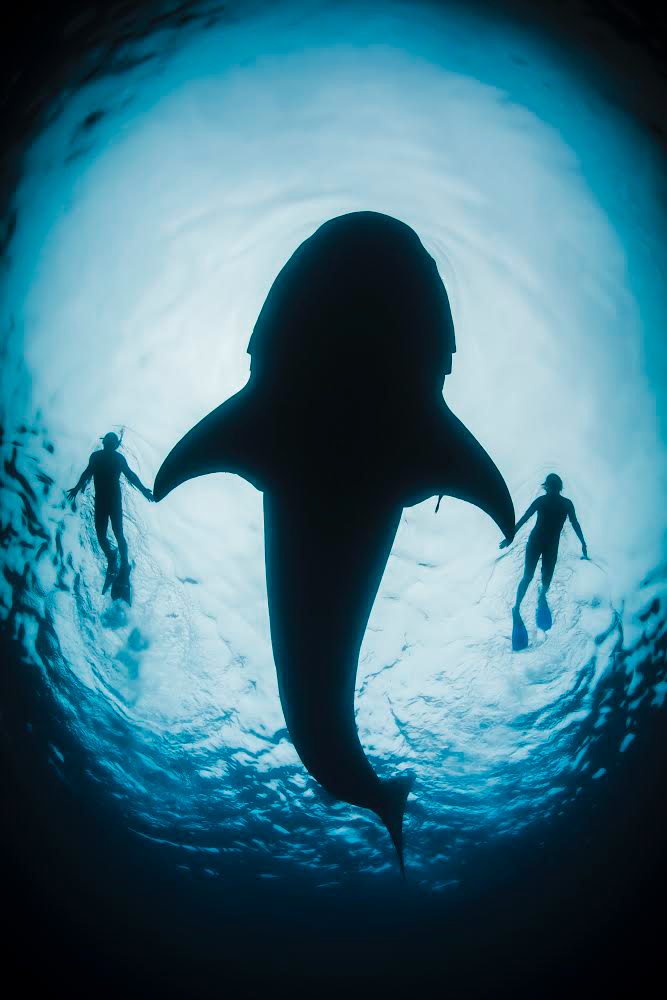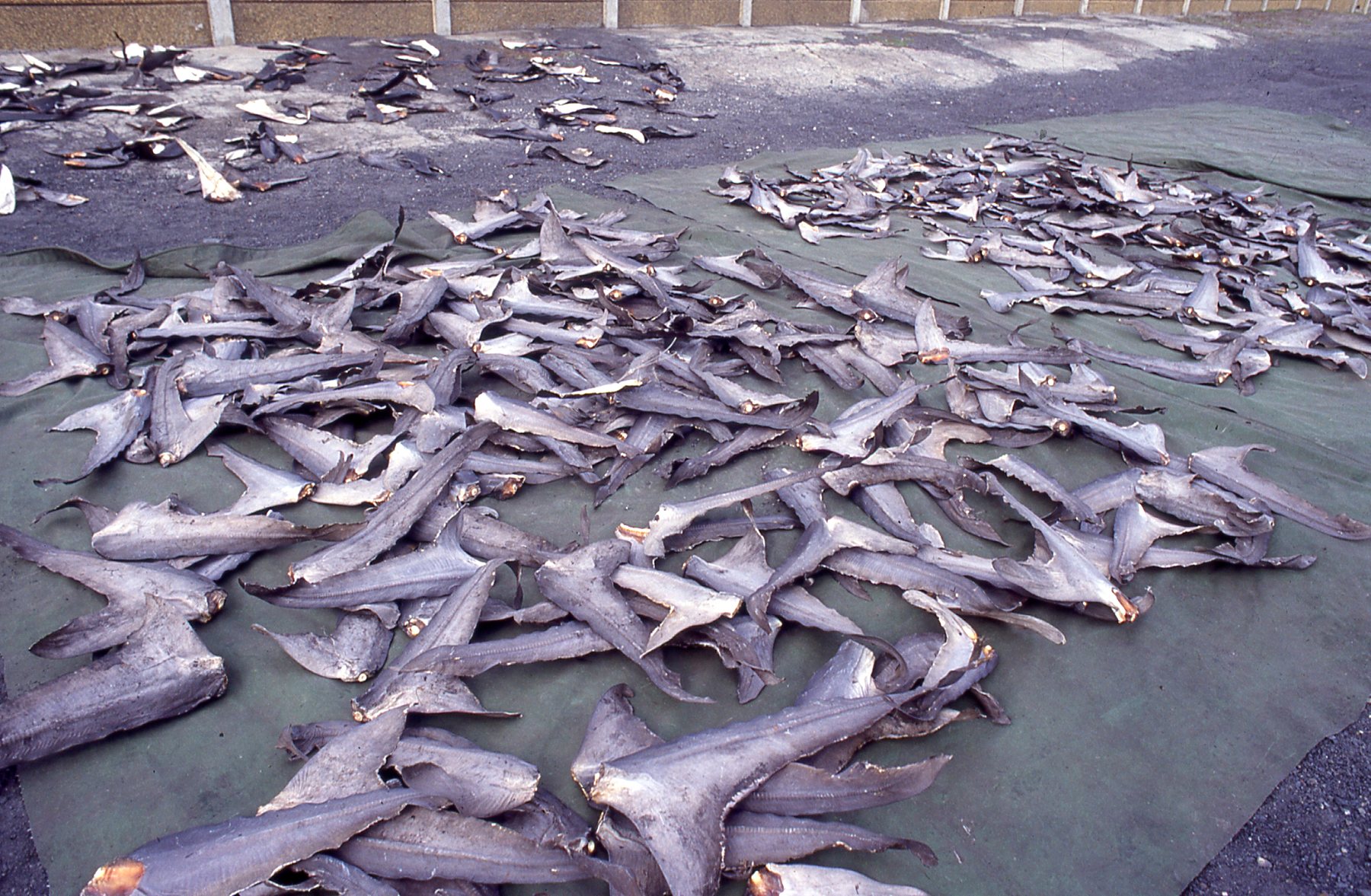Fin de Fin

Campaigns and education are helping to reduce demand for shark-fin soup, but states and corporates need to get behind an outright ban.

In 2017, Canadian journalist and film-maker Rob Stewart, 37, perished while scuba diving in Florida. He was putting the finishing touches to his third documentary, highlighting the plight of one of the planet’s most essential and endangered species: sharks.
The film he was making — Sharkwater; Extinction — provides one of the most vivid insights to date about the billion-dollar illegal fishing and finning trade, which sees an estimated 73 million sharks annually slaughtered for the sake of soup, according to the United Nations.
Global shark-catch levels have more than doubled since 1960 and populations of some threatened species, such as hammerhead and oceanic whitetip, have declined by over 90 percent in recent years. Sharks have existed for 400 million years, predating dinosaurs, and are essential in the food chain as hunters and scavengers. Without the oceans’ main predator, marine ecosystems will collapse.
After his death, Rob’s parents Sandy and Brian Stewart pulled together the 400 hours of raw footage from his 6k camera. Using his notes, and with the help of a roster of renowned editors and directors, through the Rob Stewart Foundation they posthumously completed the film.
“The entire team stayed with it; everybody stepped up. We have people from all over the world — cinematographers, filmmakers, really important people — offering to help finish this, and that was really heartwarming,” says Rob’s mother Sandy Stewart, over the phone.
It was a bittersweet irony that his death probably gave the film a higher profile than it would have received otherwise. The new patron of the Rob Stewart Foundation, HRH Princess Eugenie, has been instrumental in spreading the message, along with famous friends Sam Branson, Pixie Geldof and Cressida Bonas. The film was given a special premiere at last year’s Toronto International Film Festival; received a 100 percent score on film-site Rotten Tomatoes; and is now available on Amazon Prime, where it has been viewed by millions.
In the last few years anti-shark-fin campaigns by influencers such as Jackie Chan, David Beckham and Yao Ming have also proved highly effective in educating people about shark finning. China, once the biggest consumer of the euphemistically named ‘flying-wing soup’ is losing its appetite. According to a report from US-based conservation organisation WildAid, since 2006, consumption of shark-fin soup has dropped 80 percent in China, as younger generations abandon the dish and the trend for lavish banquets wanes.
But in other parts of Asia, where the middle class is rapidly expanding and campaigns have had less penetration, consumption is on the up.
“While consumers in Mainland China have changed their behaviour in response to awareness campaigns and a government banquet ban, shark-fin soup remains on the menu in Hong Kong and Taiwan, and consumption is growing in places such as Thailand, Vietnam, Indonesia and Macau,” says WildAid CEO Peter Knights.
A 2018 WildAid survey showed that in Thailand, more than half of urban Thais have tried shark fin and, alarmingly, 61 percent plan to consume it again. The charity recently engaged the help of popular Thai actor Pong Nawat and hopes to replicate the successful influence of Yao Ming and Jackie Chan in China.

While consumers are the first port of call, state regulation is also crucial. Over recent years, dozens of governments have adopted bans on shark fishing, from Australia to Taiwan, some of the US and most of the EU. Rob Stewart would have been proud that his home country Canada in June became the first G7 country to ban the import of shark fin (it had a ban on shark fishing already); an important move as the country was one of the biggest importers outside of Asia. However, given the prevalence of illegal, unregulated and unreported fishing, and the fact that most countries still do not ban finning, the practice continues globally.
Faced with challenges such as poor enforcement, accidental catches, inadequate laws, and criminal activity, campaigners are calling for an outright ban.
“The global shark-fin industry is rife with criminal activity and cannot be trusted to police itself effectively,” says Alex Hofford, a wildlife campaigner for WildAid in Hong Kong SAR. “Around a quarter of all shark species are hurtling towards extinction. The only real way to protect sharks is to halt consumption and trade in all shark fin.”
He adds that shark finning and the mixing of catches tend to take place in the open seas or in remote ports, where there is little to no oversight and enforcement capabilities are limited.
The other target for reducing shark-fin trade is corporates. While Cathay Pacific, UPS and DHL no longer ship shark fin, FedEx still does so. Singaporean supermarket giant chains Cold Storage, NTUC Fairprice and hypermarket Carrefour no longer stock shark fin, although others still do so. And while many restaurants in Hong Kong and China have removed the dish from the menu, many, including Maxim’s, Hong Kong’s largest restaurant group, still serve it. And what Sharkwater; Extinction showed, and that many people don’t realise, is that shark is now a hidden ingredient in lots of consumer goods, from pet food, to garden fertilisers to cosmetics, in the form of squalene.
As consumers, we must do our research and be vigilant about which companies we support, Brian Stewart urges. “Voting with your dollars, identifying the companies that are supporting sustainability in the natural world, is key,” he says. “It might cost you a bit more, but you are doing so much to encourage the continuation of species, versus companies that are actively harming them.”
For the Stewarts, their way of coping with their son’s death has been to carry on his legacy. “We haven’t stopped; we haven’t really had time to grieve. What keeps us going are the emails from young people saying how Rob’s movies change their perception and young people saying things such as they’ve decided to become environmental lawyers because of him,” says Brian.
Sandy and Brian want to emphasise the positive message of the film, that, given time, shark populations can and do bounce back. This was underlined with the case study of The Bahamas, once a hub of shark fishing, but eight years ago named a conservation zone under an outright ban. Now, local people make good money from tourists coming on dive trips to see sharks and the shark population is once again thriving.
Another example of sharks’ reverse in fortunes is the Galapagos National Park. In the early 2000s, the area was rife with shark finning - it is estimated that nearly 12,000 sharks were poached for their fins in 2009 alone.
UNESCO and charities like WildAid stepped in to support rangers with technology, tools, training, and strategic advice to improve the enforcement system protecting the park. They were given long-range cameras, electronic vessel monitoring, and radars complemented by regular ranger patrols using a fleet of three oceanic vessels, five coastal vessels, and a patrol plane. Last year, they conducted nearly 9,000 hours of patrols throughout the reserve.
As a direct result, no incidents of shark finning have been observed within the park since 2014. It is now the site of the densest shark population in the world.
Sandy adds: “Rob didn’t want to preach to people. He wanted to show people how beautiful these creatures are and that Jaws is not reality. He changed the world’s perception of sharks and he died for a species he loved.”








